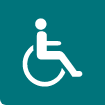We use cookies to improve your experience. By accepting you agree to our cookie policy

Complex Regional Pain Syndrome can be terrifying for young people. Not only are you in intense pain, but you also face unique challenges that many adults do not. CRPS can affect your daily lives; here are some examples of how:
You can fill this unique box with all the things that help you get through a flare-up, whether that be an iPad, music, hot water bottles or chocolate. Every box will look different - it is about what works for you.
You can keep this box close to your bed to be easily accessible when your CRPS symptoms flare up.
People with CRPS syndrome often find relief from heat; they can use a hot water bottle, heat pad, or heated blanket. This is especially helpful in the winter months.
Ensure you use these items safely and avoid applying extreme heat directly on your skin.
Pacing helps patients manage their activity levels and take breaks when needed. You may plan extra rest ahead of strenuous activities or busy days.
You can break your tasks into smaller chunks. Someone with Complex Regional Pain Syndrome is unlikely to complete a task in one day.
For example:
It can be heartbreaking for your family to witness your struggle with CRPS pain. They may feel powerless due to their inability to help you.
Try to talk to your family, and tell them what they can do to help you. This can not only offer you the support that you need, but it can also help them to feel like they are making a difference.
People diagnosed with CRPS can no longer partake in their daily routines due to chronic pain.
This is why alternative routines often provide an anchor to build up all of your daily activities. A consistent pattern is essential when caring for yourself, spending time with loved ones, and enjoying your hobbies. It helps with your overall well-being.
Sleep is an essential part of life and contributes to us feeling well both physically and mentally. A dysfunctional sleep pattern can worsen your pain, and you can get trapped in a cycle of inadequate sleep and chronic pain.
Here are some tips for getting a better night's sleep:
We use cookies to improve your experience. By accepting you agree to our cookie policy
 £
£